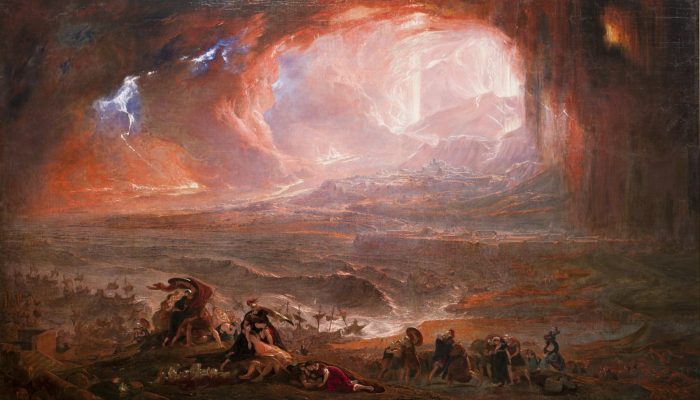
The GfGD blog theme this month is science communication, and so regular blog contributor Heather Britton reviews a book which she believes contains some useful geological and human experience, in the form of a gripping novel.
The Geology for Global Development blog is not a site renowned for book reviews, but when a fiction book embraces geoscience as much as Robert Harris’s ‘Pompeii’ there are few reasons not to write about it on this platform. The book was recommended to me by my petrology professor at university, because, as she put it at the time, it is the only book she had ever read which quotes a geology textbook at the beginning of every chapter. Needing no further encouragement, I began reading, and I’m very glad that I did.
The book is set across the events leading up to, during and after the eruption of Vesuvius in 79 AD. Through the eyes of four starkly different members of Roman society – a hydraulic engineer, a scientist, a rich landowner and his daughter – the eruption is recorded in immense detail. As a reader it is clear that Robert Harris has done extensive research on the eruption, but inevitably some aspects, particularly the reactions and experiences of the characters individually, are filled in with more than a little artistic license. Nevertheless, the snippets from textbooks on Vesuvius at the beginning of each chapter match-up with the geological events of the story, reminding the reader that although the book is very much a work of fiction, the experiences had by the characters are representative of those of real people.
The protagonist of the book is Attilius, a hydraulic engineer sent from Rome to southern Italy to replace his predecessor, Exomnius, who has mysteriously gone missing. In the aftermath of an earthquake (an ominous warning sign of the tragedy to follow) the main aquaduct supplying water to the region is damaged, and Attilius is sent out to repair it. It is whilst taking on this endeavour that unusual events begin to occur, both social and geological, with the climax of the action coinciding with the eruption that has made Pompeii famous today. Despite every reader being aware of what the various events described in the book are leading up to, there is more than enough fiction in the story to make the tale far from predictable, with the case of the missing Exomnius taking centre stage and the eruption acting as a dramatic backdrop –and catalyst – of these events.
 A further aspect of the books that I enjoyed was the authentic feel of the region around Vesuvius, including the cities of Pompeii, Herculaneum and Misenum. At school I dropped history as soon as I was given the opportunity, but even with only the most basic historical knowledge I found the book very accessible. Robert Harris does well not to overwhelm the reader with incomprehensible Roman terminology and instead the difference between today’s society and that of this era are drip-fed. I found myself learning about the culture of the Romans without realising I was doing so, and appreciate the insight into this ancient civilisation.
A further aspect of the books that I enjoyed was the authentic feel of the region around Vesuvius, including the cities of Pompeii, Herculaneum and Misenum. At school I dropped history as soon as I was given the opportunity, but even with only the most basic historical knowledge I found the book very accessible. Robert Harris does well not to overwhelm the reader with incomprehensible Roman terminology and instead the difference between today’s society and that of this era are drip-fed. I found myself learning about the culture of the Romans without realising I was doing so, and appreciate the insight into this ancient civilisation.
And why have I forced a book review upon GfGD blog readers? This month’s blog topic is science communication, and Robert Harris provides an excellent example of how science can be appreciated through works of fiction. ‘Pompeii’ picks out the links between various geological events, such as volcanic eruptions and earthquakes, and combines them with a gripping fictional tale showing the impact that these events have on individuals. I am certain that this text wouldn’t be out of place on the bookshelf of any avid reader of the GfGD blog.


